Oh, the Things I Have Learned!
“Travel far enough, you meet yourself.”
― David Mitchell, Cloud Atlas
I held October 2025 open to traipse through points in Spain and Portugal with two long-time friends. The months saw plans morph from reuniting with Maribel’s sisters in Seville, connecting with Manu and Aser – two wonderful guys I brought to Brainerd decades ago as exchange visitors – then maybe cross into Portugal’s Algarve region for countryside and beaches. The resulting trip was, however, unrecognizable.
Lesson one: Adjust and be flexible.
What remained was iPhone technology, Uber apps, GPS, Guru-Tours, and researching daily places to visit. Living on a gravel road in the country never required an UBER app. Seems that chip credit cards need a “tap” upgrade. I learned that travel companions should have compatible bladder capacity. Mine works fine for my petite-ness, but required more frequent stops. My travel mantra: If you have an opportunity – go! And, my Mexican vocabulary didn’t hold up to Maribel’s desire to have me speaking the “Real (Royal) Academia de Salamanca,” mother tongue.
Lesson two: Accept myself. To quote Popeye, “I yam what I yam.”
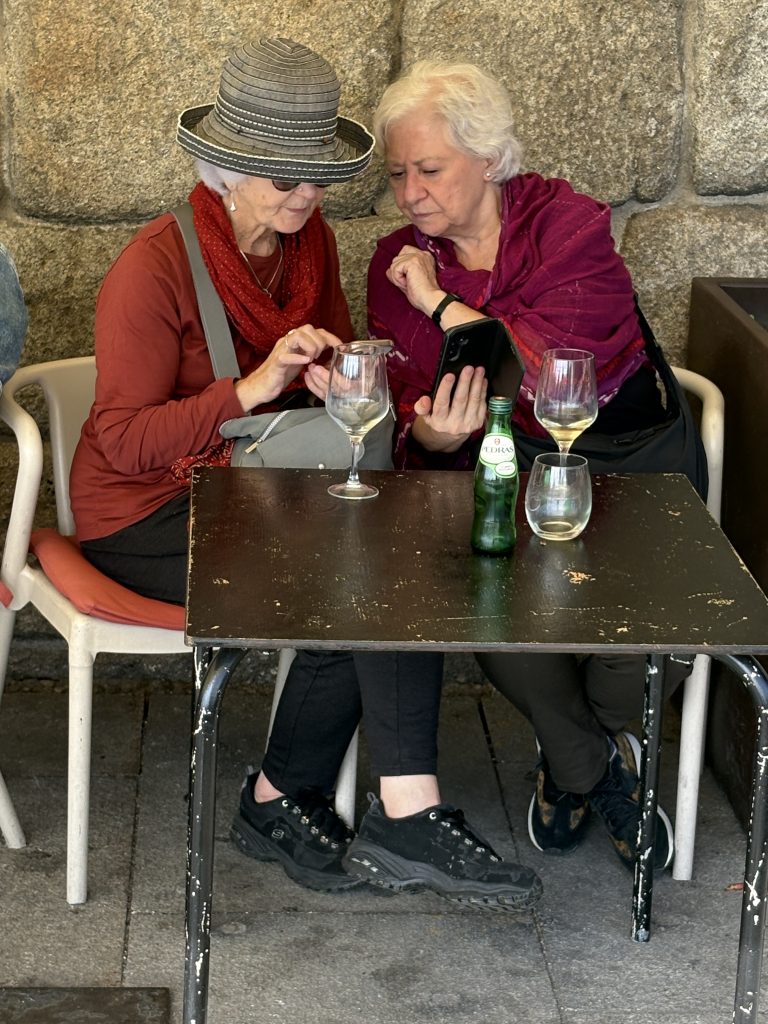
“The real voyage of discovery consists not in seeking new landscapes, but in having new eyes.”
― Marcel Proust
My teenaged travels were filled with awe and wonderment from Gothic cathedrals, gold-plated angels, 500-year-old tombs of kings and conquistadores to the aromas of lunches cooking in olive oil filtering down from balconies and boxwood fragrances rising up from manicured gardens. Every day my “new eyes” marveled at their surrounds.
Lesson three: Soak it up.
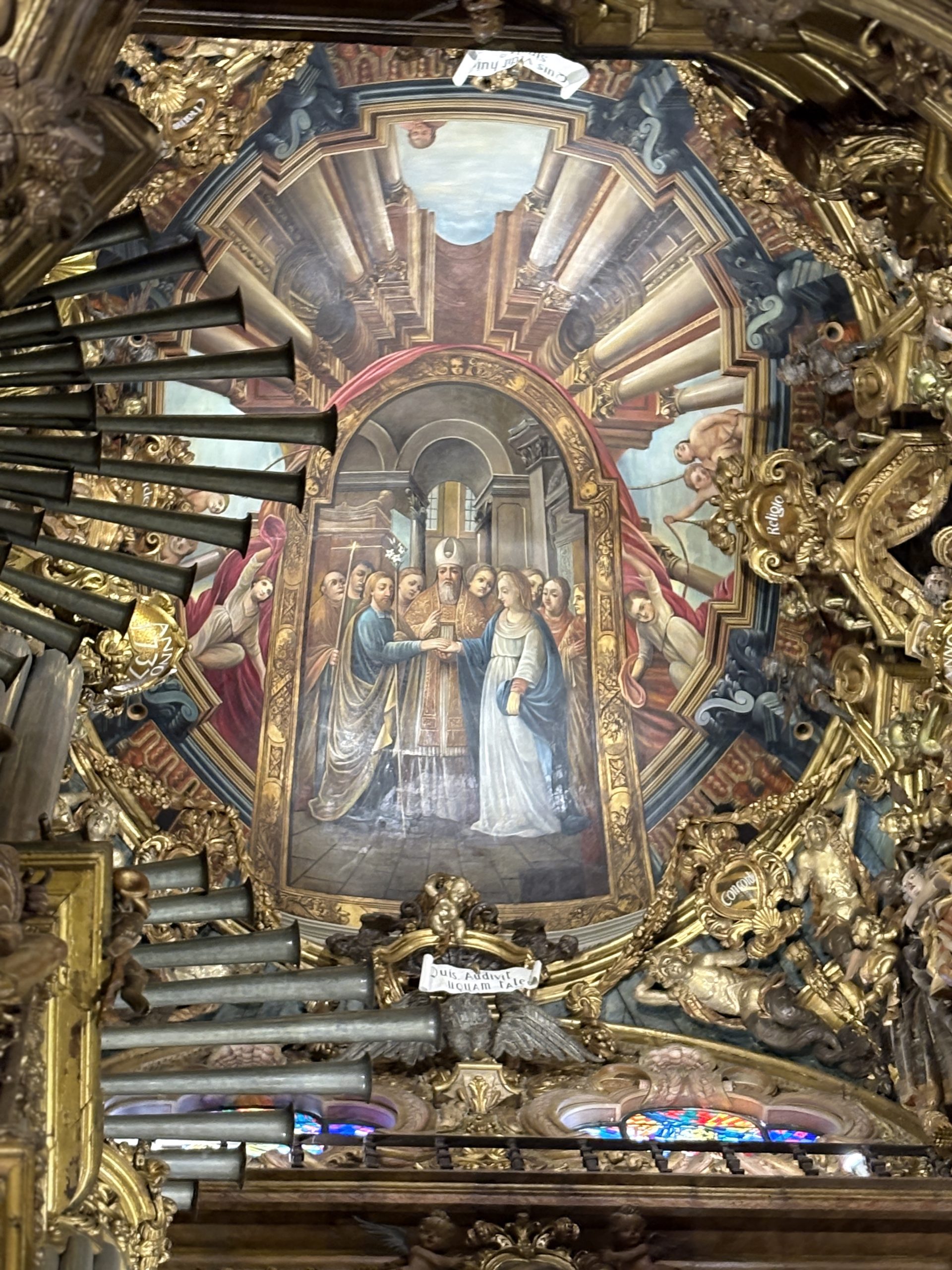
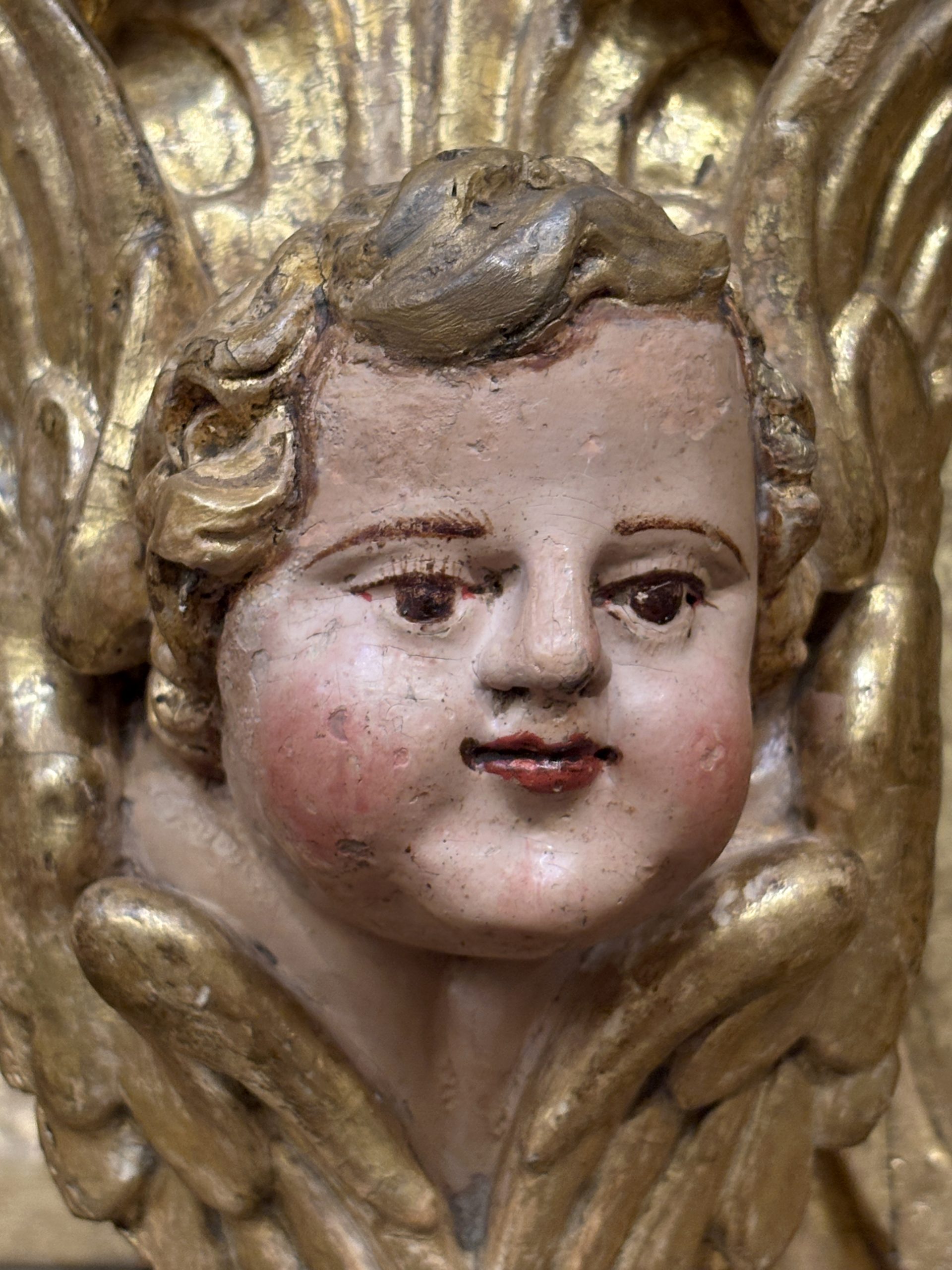
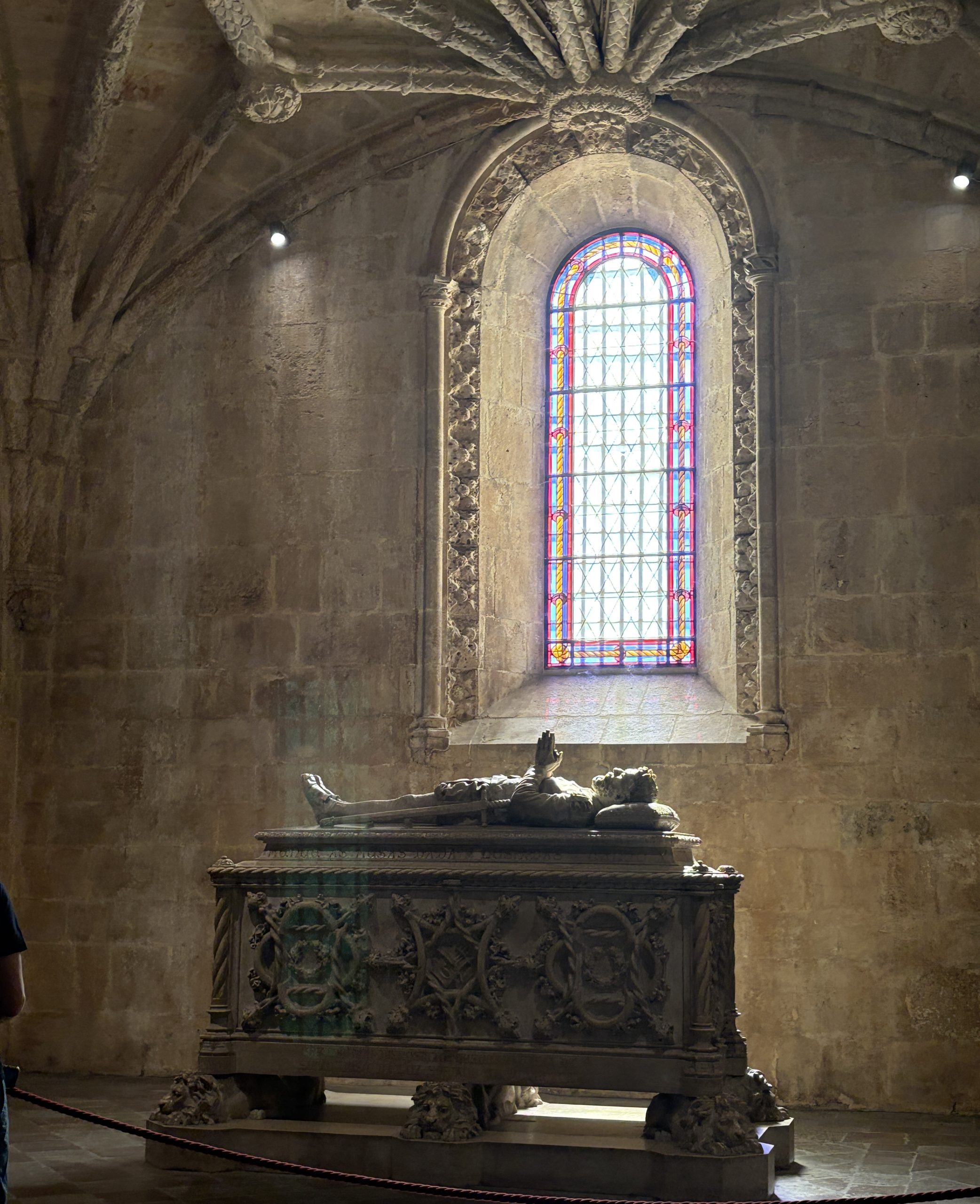
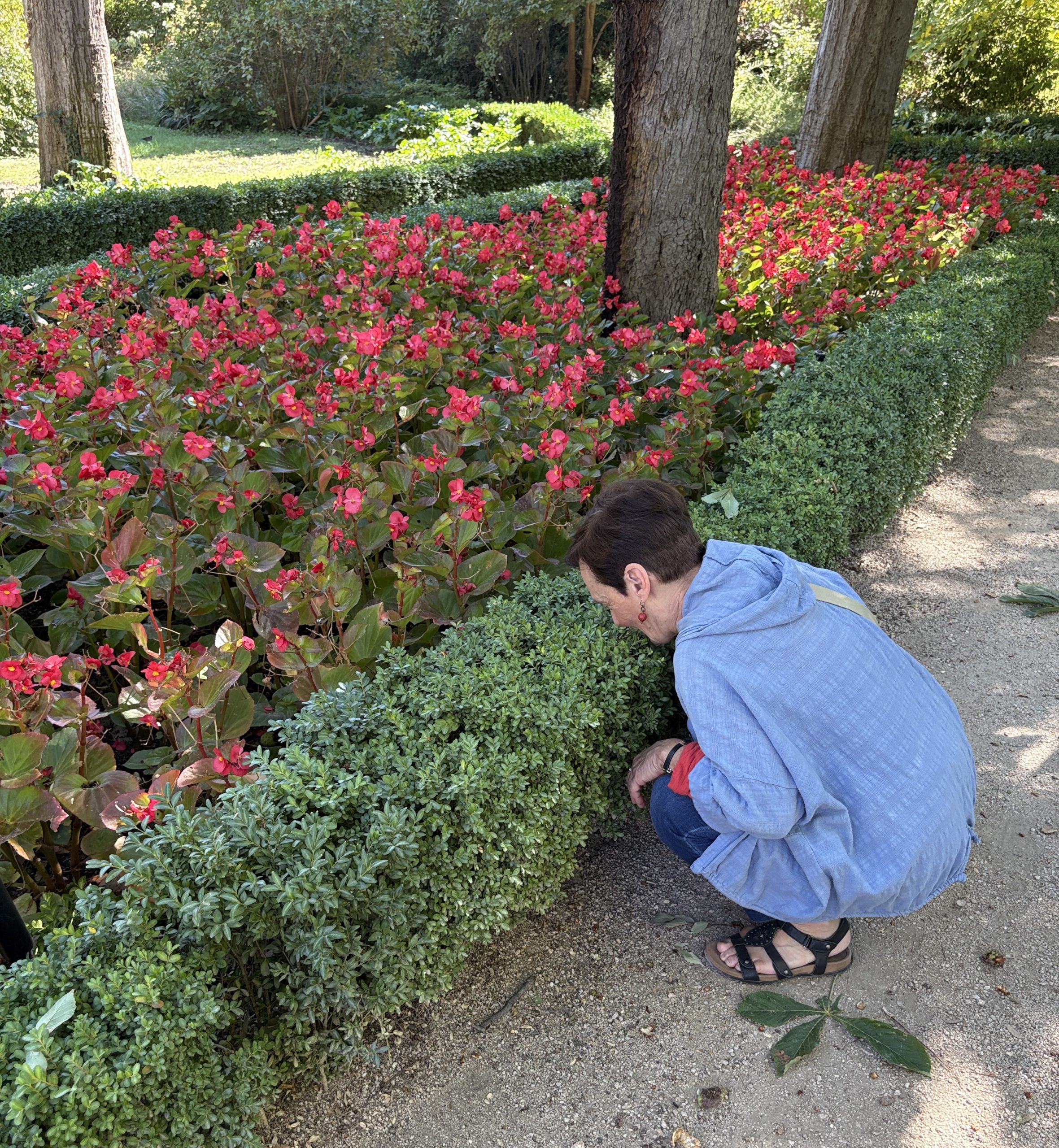
Time taught me the stories behind the gargoyles, castle turrets, massive pipe organs and the knight’s empty armor. “New World” peoples’ hands were severed if they didn’t produce a monthly quota of gold. The Inquisition. Slavery. Class systems tight as caste systems. Rape resulted in new bloodlines. Portugal and Spain planted their flags on the earth’s seashores. Centuries of everyday lives did not get recorded.
Lesson four: History
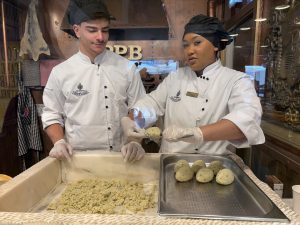
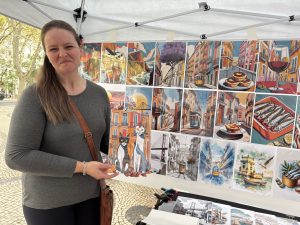
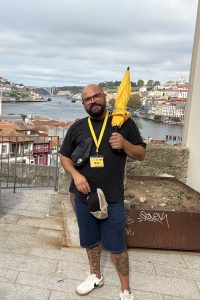
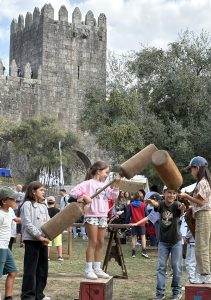
“Travel is fatal to prejudice, bigotry, and narrow-mindedness, and many of our people need it sorely on these accounts.”
― Mark Twain, The Innocents Abroad / Roughing It
People. People. Being bilingual changed my life. I could chat with venders, ask the taxi driver about politics, laugh with the hotel receptionist, and often made friends. Over the years, Maribel introduced me to her friends and they to their families. Like Manuel and Aser, sons of Carmen and Pepe – ties pass on to the next generation.
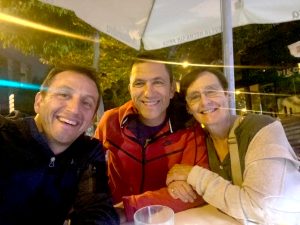
To communicate this time, I learned about: Portuñol (in Spanish) or Portunhol (in Portuguese), the “Spanglish or Tex-Mex” version of combinations. It covered survival needs and, with gestures and grimaces, sometimes communicated our feelings about politics, places and cuisine. Greetings began with: “¿Portugués? Español? Inglés?” until we landed on one that worked. Europeans are often multilingual and used to this greeting.
Lesson five: Smile and learn a few courtesy words
“Take only memories, leave only footprints.”
― CHIEF SEATTLE
Travel and time have changed my focus. My “new eyes” now take in details over landscapes. The phone booth, the laundry, the tiles, a flower. I order fish (bacalao) and Nata, the national pastry. I greet fellow travelers at breakfast. The Irish, British and couple from Switzerland nod their heads in sorrow when we tell them where we are from. The United States is not a safe destination. Will Spain and Portugal’s history of world power and monarchs teach us anything?
After breakfast, we step back out into their world graffiti, humor, markets and the daily scurry.. Lesson six: Interact with people. Be a sleuth of cultural clues.
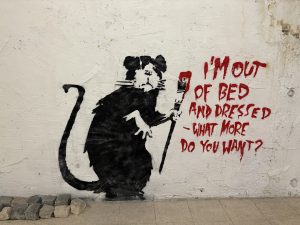
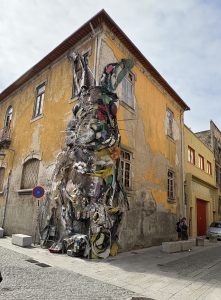
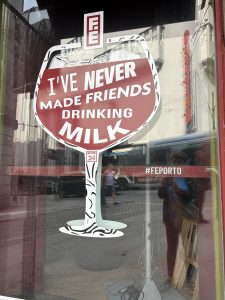
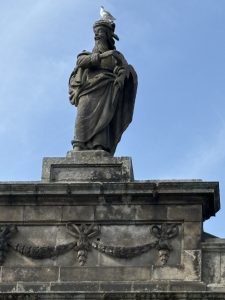
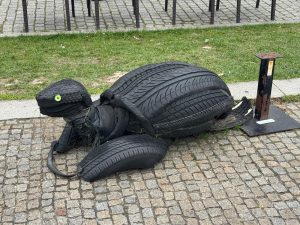
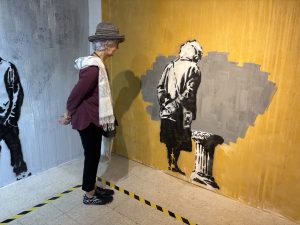
“Travel is the only thing you can buy that makes you richer.”
— Unknown
Going forward, I want to meet people over places. Granite and gold are impressive, but personal interactions are the real treasures. Banksy’s graffiti? What happened to the fishermen in Aveiro whose boats are now hauling tourists along the channels? What of the desk clerks and hotel maids? What about the taxi driver staying calm in rush hour traffic while getting us to our destination? Do we notice? Are we grateful? I recall the young woman tourist guide who saw us coming down the steep hill and deemed us as “cute” . . . I’ll take that.
Finally: “Wherever you go, there you are.” (multiple authors)
Being of a “certain age” infers sorting out what you want to be doing, with whom and, “if not now, when?” Clearly my answer is, “Now.”
The journey starts with a step out of your door. Above me, geese fly south. Below me, fading red leaves fallen from the red maple crunch underfoot. I head to a grocery store, where I intend to smile at people, think about the empanadas and automatic bread cutter in Madrid, while checking out the cranberries for Thanksgiving dinner. Travel gives me comparisons.
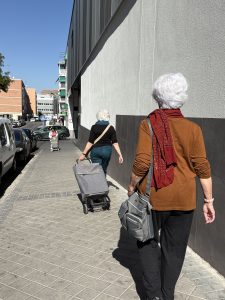
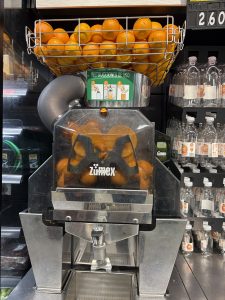
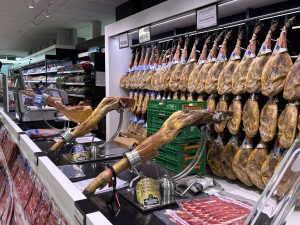
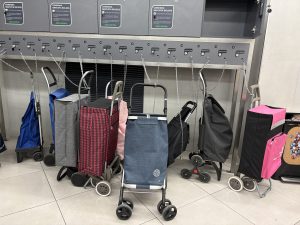
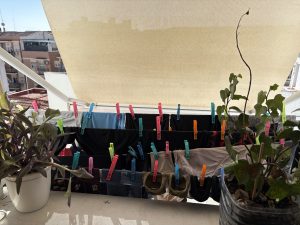

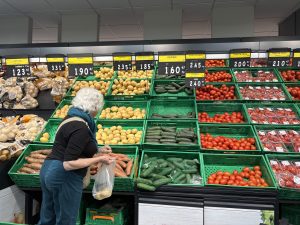
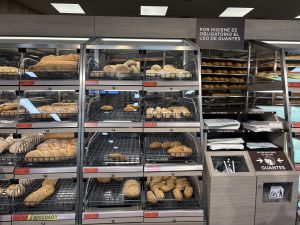
You don’t have to cross the ocean. Put on your “new eyes” and cross the room. Cross the street. Look down the grocery aisle at the foods we eat, the carts we push, the looks on peoples’ faces. Take your next step and begin the new adventure.
Take an intentional look around you and describe what you see, as if for the first time or as if explaining it to someone who has never been in our/ your culture.
What are your holiday rituals? Beliefs? What do others see when experiencing us?

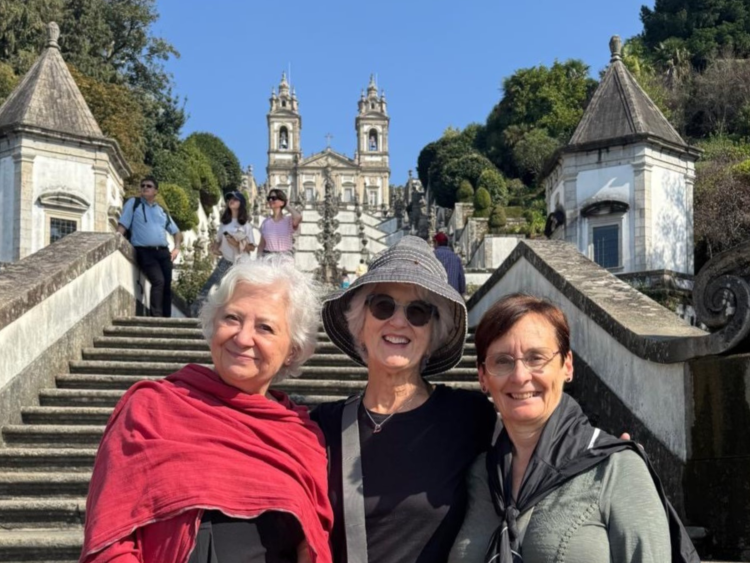
When I make the time I love to write a travel newsletter of my journeys. And people seem to enjoy them. I read something somewhere once challenging you to write about your hometown as if you were traveling there. I haven’t managed to pull it off yet but I like the “ new eyes “ it suggests.
“Interactions are the real treasure!” I love learning and your “Lessons” are clear and powerful. Thank you for sharing your enriching experiences and outlooks with us!